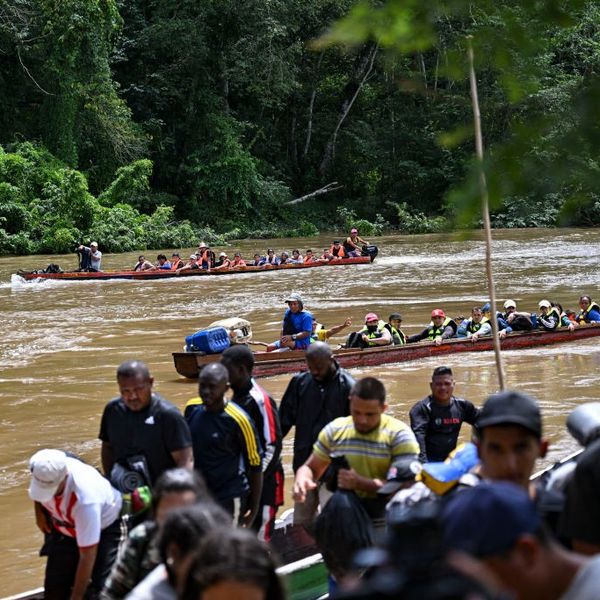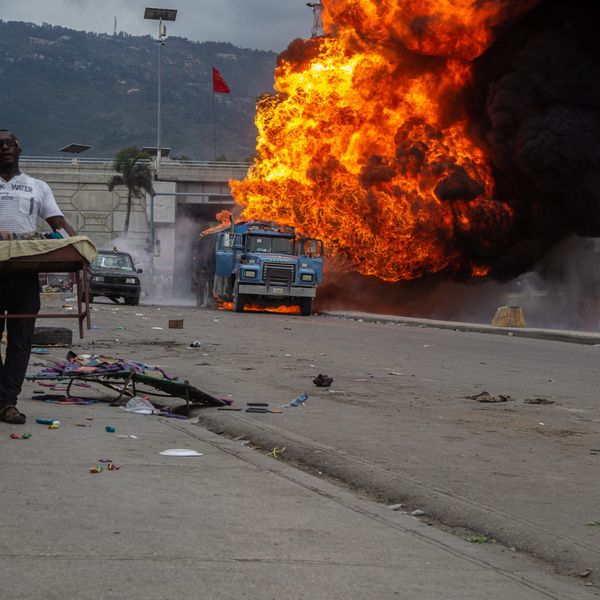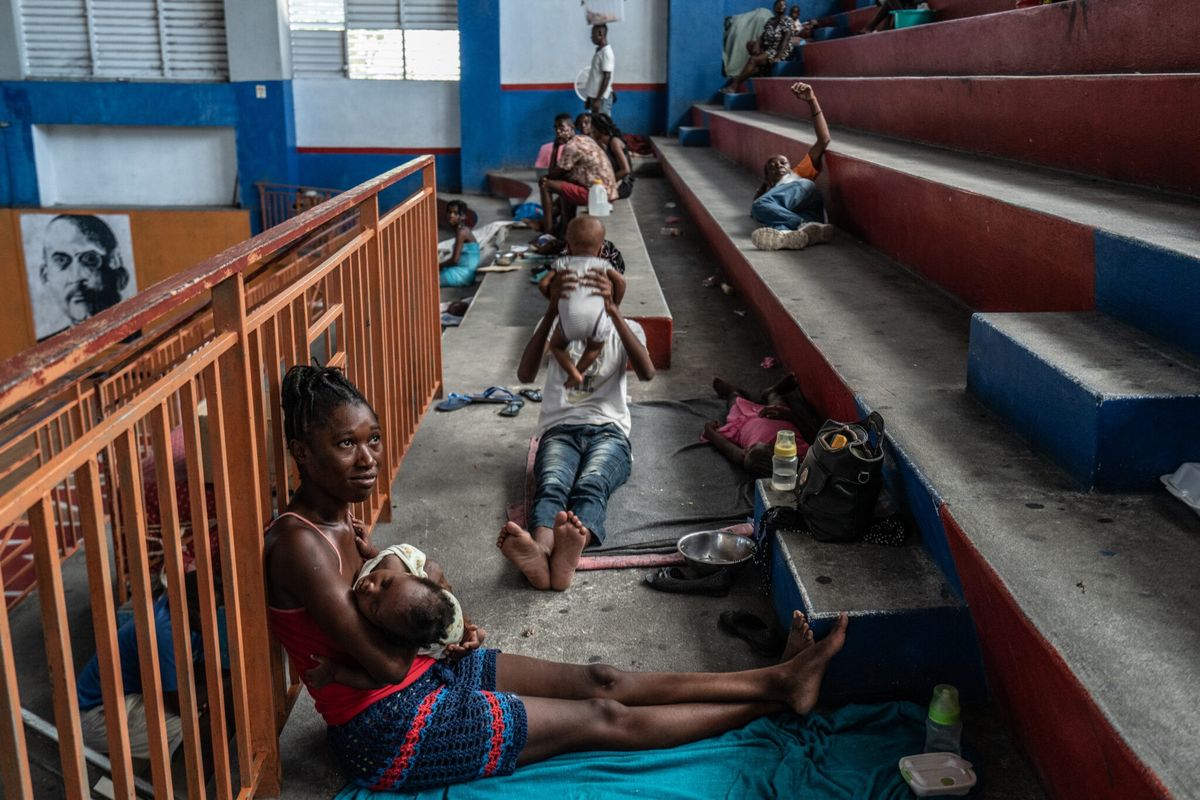EXPERT PERSPECTIVE — After months of increasingly grim reports of gang violence and recently, images of fearful Haitians seeking safety by camping in the open air outside the U.S. Embassy in Port au Prince, there is some moderately encouraging news for Haiti. Kenya has offered to lead a multinational force to improve security and is offering to send 1000 police officers to work with the Haitian police to help restore the rule of law.
Haiti’s last president, Jovenel Moises, was assassinated in July of 2021. Shortly thereafter, the country was hit by an earthquake that registered 7.2 on the Richter scale leaving 10,000 injured and nearly 2,000 dead. The quake caused extensive damage to infrastructure in a nation that had not fully recovered from an even bigger quake in 2010.
Since 2021, conditions in Haiti have spiraled out of control. 80% of the capital city is now controlled by violent gangs and much of the interior is as well. It has recently been estimated that more than half of all Haitians face food insecurity. Cholera has again broken out. Kidnapping has become epidemic. This nation of around 11.5 million is now nearly a failed state albeit with a vestigial government.
In October of last year, Prime Minister Ariel Henry called for an international security force to help Haitian authorities restore order. Shortly thereafter, the United Nations Secretary General endorsed the idea as did the U.S., Mexico and, eventually, Caribbean countries like the Bahamas, Dominican Republic and Jamaica.
For nine months, no country stepped forward to lead the mission. This was, in part, because the legacy of the last major intervention force, deployed after former President Bertrand Aristide was toppled in 2004, is bitterly recalled now, as much for the cholera epidemic for which the peacekeepers were plausibly blamed, as for the success of the mission in rescuing the country’s democracy and maintaining order.
It's not just for the President anymore. Cipher Brief Subscriber+Members have access to their own Open Source Daily Brief, keeping you up to date on global events impacting national security. It pays to be a Subscriber+Member.
Because of the United States’ own history of past interventions in Haiti having U.S. troops on the ground seemed a bad idea, likely to cause controversy both in Haiti and outside of Haiti. As a consequence, the U.S. and the United Nations have been determinedly seeking a candidate nation to assume the lead. The announcement by Kenya was a break-through, but 1000 Kenyans will probably not be sufficient to restore order.
Rescue and recovery will take lots of money, a larger international force and time. The U.S. is already providing substantial assistance funding. As recently as June 8, Vice President Harris announced an additional S53.7 million in emergency funding. According to the U.S. Department of State, this will bring the total for humanitarian aid in FY 2023 to more than $110 million and the total since 2021 to $282 million. This money is addition to over $300 million in development and health assistance from the United States Agency for International Development (USAID). Other international partners such as Canada and France are also already contributing. Nevertheless, more money will be required to finance a durable rescue effort, maybe a good deal more.
Major challenges, beyond financial support, remain. Next on the international community’s agenda should be securing a United Nations resolution authorizing the rescue mission. The crisis in Haiti requires a capable force willing and able to take on the gangs. This means adding to the Kenyan police contingent with peacekeepers from other nations. Most countries require a UNSC resolution before committing troops to peacekeeping missions. The U.S., in partnership with Ecuador, is planning to seek such a resolution soon.
Have you reserved your seat at the table for The Cipher Brief Threat Conference? Space is limited. Apply today.
Restoring the rule of law and establishing a reasonable measure of security will be essential to facilitate the return of those in the international assistance community that fled as gang violence spiked. Once conditions permit their return, the hard work of rebuilding Haiti’s shattered society begins in earnest. It will be crucial that both peacekeepers and assistance workers understand that Haitians must be fully integrated into their efforts, especially those intended to rebuild the country’s political institutions. Haitians, desperate as they may be, will not accept the imposition of a foreign political culture.
With the United States’ national security community focused on Russia’s invasion of Ukraine, NATO expansion, China’s increasingly surging influence, Iran’s continuing development of its nuclear program etc., it is easy to understand how Haiti’s travails might be overlooked, especially by an American public transfixed by our own domestic political dramas. The deteriorating mess in Haiti, however, should concern us as well as Haiti’s neighbors. The suffering of the Haitian people has become heartbreaking and the country is bleeding refugees into the Caribbean, Mexico, Brazil and the U.S.
The Biden team is to be commended for its efforts to date to forge a response to the crisis but the Biden administration, the U.S. congress, the United Nations and the other donor countries need to understand that reviving and rebuilding Haiti will take patience as well as money and a security force.
The Cipher Brief is committed to publishing a range of perspectives on national security issues submitted by deeply experienced national security professionals.
Opinions expressed are those of the author and do not represent the views or opinions of The Cipher Brief.
Have a perspective to share based on your experience in the national security field? Send it to Editor@thecipherbrief.com for publication consideration.
Read more expert-driven national security insights, perspective and analysis in The Cipher Brief










